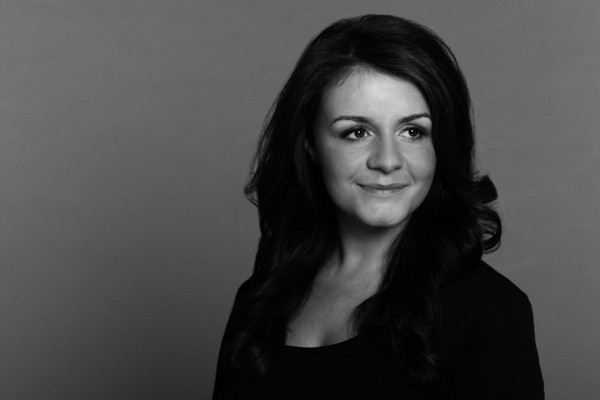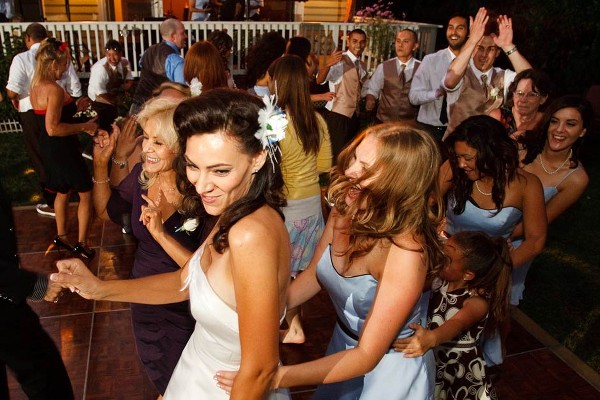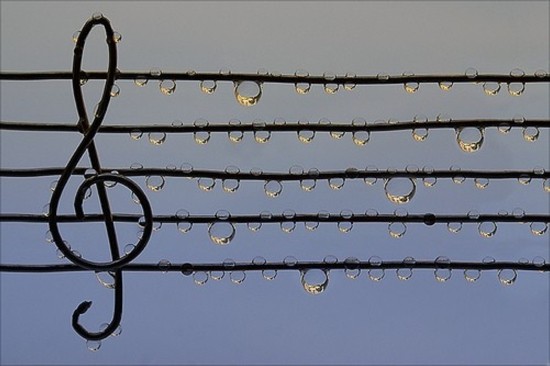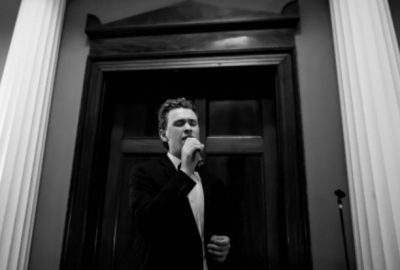If you’re struggling to choose between the music you want and the music you think you should have for your wedding, then this post is for you. Guest blogger, professional vocalist Faye Potts, offers her advice for choosing and placing your ceremonial music.
- Image: scottmcdonaldweddings.com
Music is without question one of life’s greatest pleasures. As we grow up we come to realise that music is a faithful friend that is with us when we are happy and with us when we are sad. In life we all have a unique story but we also have a unique soundtrack. Undoubtedly, one of the most significant tracks on this soundtrack will be the music you have for your wedding day. Finding the right wedding band ranks very highly on a couples’ list of priorities. In a recent survey conducted by Mrs2be.ie selecting a band came in at a very healthy 4th position, after the prestigious venue, dress and photographer. Good bands, like photographers and venues, tend to get booked up very quickly, but there is another reason for the bands’ high ranking; Irish people love a party and they know how to throw a good one. Couples know that if the music is right, then the ‘craic’ will follow. As a result, the music at the ‘afters’ becomes crucial. The bridal party and guests look forward to this point, as the dancing coupled with the removal of ties and heels signals to them that their job is done and they can finally relax.
It is when we come to the actual wedding ceremony itself that the music unfortunately looses some of its shine and importance, but again there is a reason for this. Organising or even being involved in a religious ceremony is unfamiliar or old territory for most modern couples. We can easily see how social change in Ireland has encouraged many couples to opt out of a religious ceremony completely and to create their own personal civil ceremony where they can select whatever music they like. However, even though many couples have grown unfamiliar with religious custom, this does not mean that they are ready to walk away from the institution of the church wedding. What we see from the Mrs2Be survey is that an overwhelming 79% of couples stated that they would be getting married in a church. As a wedding singer for both church and civil ceremonies, I meet so many different brides. On the one hand, there are always those who know exactly what they want.
On the other hand we have brides who are so laid back that they wholeheartedly trust me to choose their entire music programme. Most commonly however, I meet slightly stressed-out but excited women who are dealing with a common wedding symptom, which is the battle between what they think they should have and what they actually want. They realise that there are musical boundaries within the ceremony but they do not know what they are exactly. Many do not realise that they can have the music that is special to them (within reason of course). Thus ceremony music (which ranked a respectable 10 in the list of priorities) regrettably becomes the more mundane end of the entertainment organisation, because they feel it’s something they should have, but they’re not too fussed about it. My aim as a musician and a ceremony singer is to change that view. Now let’s not get carried away with ourselves. We need to state the obvious: if you want to have a religious ceremony, you have to respect that there are musical restrictions and boundaries. However, this does not mean that the music will be any less beautiful or meaningful. Here I have listed a few handy tips that will help you organise your ceremony music:
- Hire a professional musician: Cutting costs is always a plus but if you want to get the most out of your ceremony then hire a professional musician with the experience to help you chose the wedding programme that is right for you. Most good packages will include a full consultation that will guide you through the wedding ceremony, help you choose accompanists (don’t forget to consider them when making your budget) and provide multiple suggestions. Professionals will also be aware of the most beautiful modern hymns and religious customs that a family friend or relative may not know. A professional is prepared for all eventualities on the day and will make a huge difference to your ceremony. As Victor Hugo said, ‘music expresses that which cannot be said and on which it is impossible to be silent’. Just remember to shop around and find a musician that can accommodate your particular taste. If you would like some contemporary songs than make sure you have a crossover singer or musician that can perform a varied repertoire.
- Consult your priest: Once you have chosen your music programme, it is important to consult the priest that will be marrying you. Do this before you print your mass booklets, just in case anything has to be changed. If you have used a professional wedding musician then everything should be in order, but you must remember that every priest is different and some (but not many) may be completely opposed to any type of non-religious song in the church. Most priests will be fine with your choices but being respectful before your wedding day ensures your ceremony will be a more enjoyable experience.
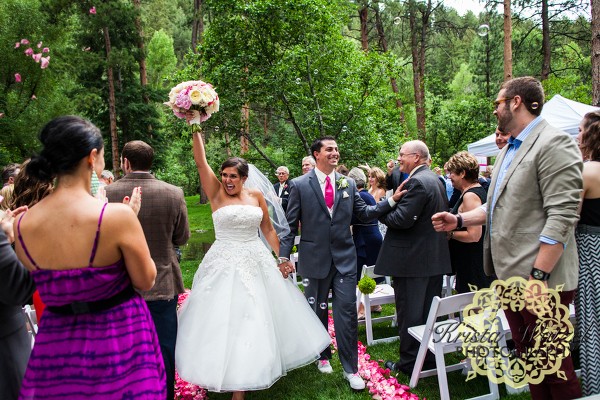
Image: kristawatzelphotography.com
Where to place your non-religious songs:
1. Processional (walking up the aisle): Many brides like to walk up to the Wagner Bridal march (“here comes the bride”) but many also opt for a love song. This is a very emotional moment for both bride and groom, so it is the perfect place for a song that means something to you.
2. Singing of the Register: By this time the mass has ended so it is a suitable place for a non-religious song.
3. The recessional march (walking down the aisle): As you leave the church is a great place for an upbeat song that you both like. Something upbeat will reflect your happy mood that you are now finally married. Just remember that the language should be appropriate in your non-religious song choices. It of course should be free of swear words but you might also think of changing certain words such as ‘sexy’ to ‘lovely’, This is very easily done.
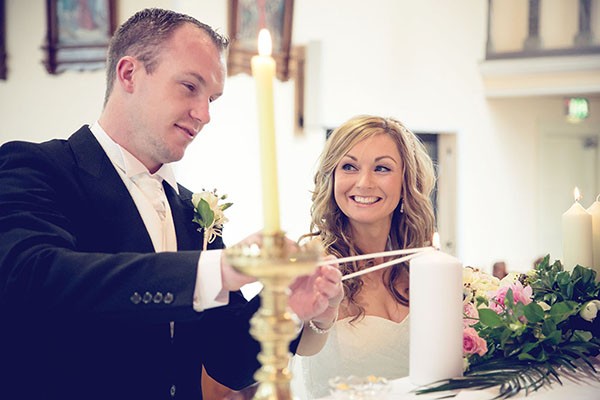
Image: ATL photography from Christine and Maurice’s real wedding
Where not to place your non religious songs:
1. Psalm: In the liturgy the psalm, like the gospel, is considered God’s word and should always have a religious theme. A professional can recommend a number of beautiful psalms for your ceremony.
2. Offertory procession: This is when the bread and wine are brought to the altar. Like the psalm, there are many hymns that particularly suit this stage in the mass and again a wedding ceremony singer will know which ones to suggest.
3. Communion: The communion is the longest opportunity for music, so many like to fit their non-religious song choices in at this part. Traditionally however, the communion is considered the most sacred part of the mass so this should be avoided if possible. Again, every priest is different so they should be consulted on this. ”
For more info on Faye Potts and to listen to her singing view her Mrs2Be profile here.
